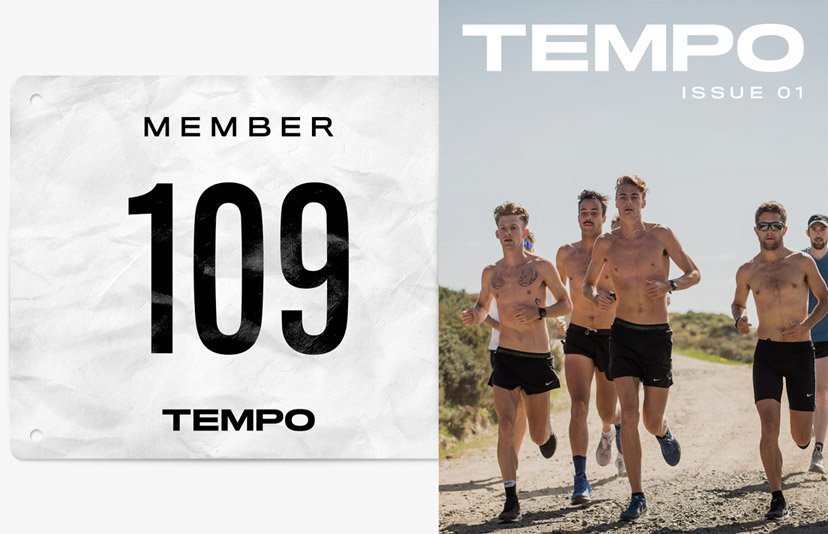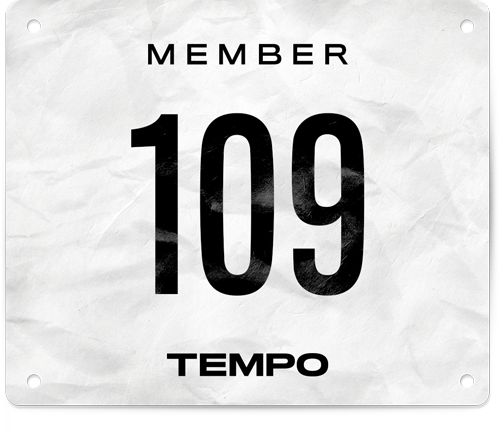Performance
Bridging the gap in Africa
Lehlohonolo Makaja is fast tracking Botswana's distance running
When we think of distance running, our first thought goes to Africa. African distance running is of course dominated by East African powerhouses Ethiopia and Kenya (also shoutout Eritrea), their rich histories and natural geographic advantages producing more and more champions each year. What we don’t think of are the smaller nations in Africa, toiling away in much the same way most of the west is, trying to unlock the secrets of the best distance runners in the world.
Tackling the gap between the best and worst of Africa is a young Motswana man, Lehlohonolo Makaja, who is bringing athletes from his homeland to train and race in Ethiopia, in an attempt to learn more about what it takes to be the best in the world.
(Side note - People from Botswana are referred to as 'Motswana' for a single person, or 'Batswana' if referring to a group).
“Apart from the high altitude, our athletes will learn training skills and adopt the best training practices. Not only does Ethiopia have the best athletes, they have the best coaches.”
Lehlohonolo Makaja
Makaja is in Ethiopia with two athletes; Sylvester Koko and Marea Maano, the fastest 10km runners in Botswana. They’re in Bekoji (2,800m altitude) for a block of altitude training with the legendary Coach Sentayehu; the man responsible for kicking off the careers of Derartu Tulu, the Dibaba sisters, and the Bekele’s among others. If you want to learn the ways of the best distance runners in the world, there is perhaps no better place to be.
The cool mountain air and occasional rainfall in Bekoji make life easier for athletes used to training in oppressive heat.
“It’s very hot in Botswana. Athletes must train as early as 5am to avoid the heat - the temperature is not conducive to running, and there are not enough indoor facilities to make it possible to train indoors throughout the year. Heatwaves in summer can be fatal, so it’s not advisable to train during the day.”
Makaja is a softly spoken but eloquent ambassador for Botswana, and it’s clear he has not only immense pride in his homeland, but a vision for how it can look in the future. He has been on a mission to bring athletes to Ethiopia since he first came here in 2014 and discovered just how good Ethiopian runners were.
“The first time I came here was as a volunteer for a non-government organisation; I was a project manager working on a project helping give school supplies to children so they could go to school. I was here for 6 months.
Meeting my favorite athlete, Haile Gebrselassie, inspired this project. I found out that not only was he Ethiopia's greatest athlete but also one of the most prominent enterpreneurs in the country after investing his prize money in different ventures. It gave me affirmation that sports can indeed can be a channel for development and a door to more great things.
I came back home and proposed that we bring Batswana athletes to Ethiopia to train; it has taken 4 years to get to this point but we will be here for many years to come."
It’s not fair to make out like Botswana doesn’t have quality runners on the world stage. You may recall names like Nigel Amos, who won Silver in the 800m at the London Olympics, and can be found crushing Diamond League meets on the regular, or perhaps you’ve heard of 400m sprinter Isaac Makwala, multiple Commonwealth Games Gold medallist and World Championships representative. And while there seems to be a pathway for developing these explosive athletes (the men’s 400m relay team are the reigning African Champions), distance running doesn’t receive significant support.
"My personal hope is that in the next 5 years we have more athletes competing in World Championships and Olympics. We need to be competitive relevant to the qualifying standards of global competitions. Right now we’re only participating in events like the 400m and 800m. So I would like to see more participation across a range of other events.
We are making strides; as you can see, the corporate sector has funded this trip so that we can train and race. And through this opportunity we hope to set up a long term program with Coach Sentayehu.”
We split a van with the Batswana athletes after training one day - what followed was a fun lesson in pronouncing difficult names.
For Sylvester Koko and Marea Maano, the trip is an exercise in being thrown in the deep end and figuring out how to swim. Coach Sentayehu puts them into workouts with his pupils, where there is little, if any, common language. And at the Great Ethiopian Run, Africa’s largest 10km race, Maano will make the start-line decision to remove her shoes, just 30 seconds before the gun goes off. It’s a constant learning experience.
“Sylvester and Marea are the fastest 10k runners in Botswana, and the ones with the most potential. After this training and racing block we go to South Africa and race there. Our athletes need competitive races; it’s one thing to be the best in Botswana but we don't want to be the worst in Africa.”
Trying to get a sense of the life of an athlete in Botswana, I’m curious about the role of gender in the athletics community.
“We have a good balance across genders in Botswana. Our first achievement on the world stage was actually by a woman, Amantle Montsho, when she won gold at the 2011 World Championships in the 400m. Women are performing as equally well as the men, and are given equal opportunities. We have a high performance camp for 10 athletes, and we have 5 men and 5 women training and living together. Even this trip, we have Sylvester and Maria; it is important for us to give equal opportunities. This is not always the case throughout Africa, but in Botswana we are more advanced in matters of gender equality.”
Speaking with Makaja, it’s hard not to root for the guy. He is proud of his country and wants to see Batswana athletes on the world stage.
And while Sylvester Koko and Marea Maano will be the pioneers of this program, laying the foundation for the next generation of talent to come on camps to Bekoji, will they directly benefit from these opportunities? They're both young and talented - that much is obvious, but whether they're able to unlock significant improvements is a question that will take years to answer.
Maybe they've started from too far back.
But thanks to Lehlohonolo Makaja - they’ve started.


